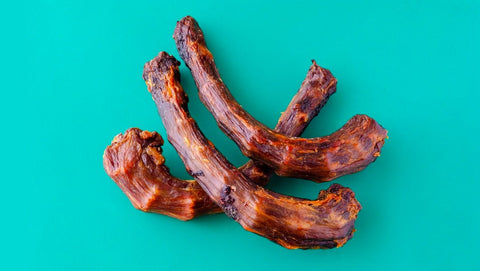Dogs and cheese — could there be a more delightful pairing? If you've ever wondered whether it's safe to share a cheesy snack with your furry friend, you're in the right place. Let's dive into the world of dogs and cheese, exploring the dos, don'ts, and everything in between.
Can Puppies Eat Cheese?
Yes, puppies can enjoy cheese, but it should be in moderation and only as an occasional treat. Make sure to pick a cheese that's lower in lactose and keep an eye out for any signs of digestive upset. Remember, a little bit goes a long way for those tiny tummies!
How Much Cheese Can I Give My Dog?
The amount of cheese your dog can safely enjoy depends on their size and dietary needs. As a general rule, treats should make up no more than 10% of your dog's daily caloric intake. For small dogs, a few small pieces a day are plenty, while larger dogs can handle a bit more.
What Should I Do If My Dog Eats Too Much Cheese?
Oops! If your dog indulges in a cheese feast, they might experience some digestive troubles like diarrhea or vomiting. Keep a close watch on their condition and ensure they have plenty of water. If symptoms persist or worsen, it's time to call the vet.Can Cheese Cause Allergies in Dogs?
While cheese itself isn't a common allergen, some dogs can have dairy allergies. Watch for signs like itching, swelling, or difficulty breathing. If your dog shows any of these symptoms, stop giving them cheese and consult your veterinarian.Is It Safe to Give My Dog Cheese Every Day?
Cheese is best enjoyed as an occasional treat rather than a daily snack. Regular consumption can lead to weight gain and other health issues due to its high-fat content. So, save those cheesy moments for special occasions!Types of Cheese: Which Ones Are Safe?
Not all cheeses are created equal when it comes to treating your dog. Here's a quick guide to some common cheeses and their suitability for canine consumption.

Safe Cheeses for Dogs
- Cheddar: A popular choice that's relatively low in lactose, making it easier for most dogs to digest.
- Mozzarella (Low-Fat): This variety is lower in fat and sodium, making it a good option for dogs.
- Cottage Cheese: Often recommended due to its lower fat and lactose content. It's also a good source of protein and calcium.
- Swiss Cheese: Low in lactose and can be given in small amounts.
- Gouda: Rich in calcium and protein but should be offered sparingly due to its fat content.

Not Safe Cheeses for Dogs
- Blue Cheese: Contains roquefortine C, which can be toxic to dogs and cause symptoms like vomiting, diarrhea, and seizures.
- Cream Cheese: Plain cream cheese is okay in small amounts, but avoid flavored varieties that may contain harmful ingredients.
- Processed Cheese: These often contain additives and preservatives that aren't healthy for dogs.
Can Dogs Eat Cheese Recap
In conclusion, dogs can enjoy cheese, and it can be a nutritious and delightful treat when given in moderation. Understanding your dog's lactose tolerance, choosing the right type of cheese, and keeping portions in check are key to ensuring your furry friend can safely savor this tasty dairy product.
Always consult with your veterinarian if you have any concerns about introducing new foods into your dog's diet. With the right approach, cheese can become a cherished part of your dog's treat repertoire. So go ahead, share a little cheesy love with your canine companion — just don't overdo it!
Happy snacking, pup parents! 🧀🐾





